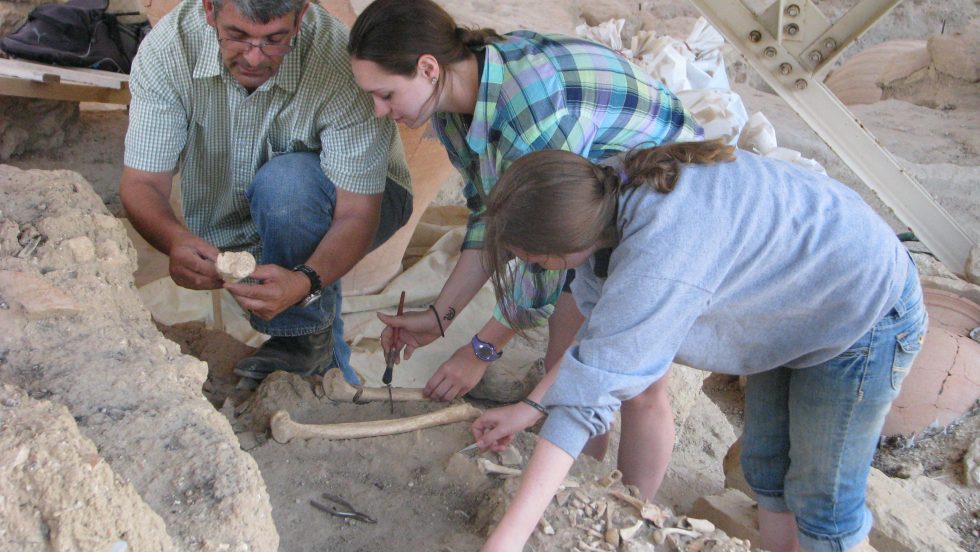
Lombardi applies the knowledge she gained digging ancient remains in Crete to studying infant mortality with a medical examiner.
Every year, Adelphi professors, led by Anagnostis Agelarakis, PhD, take anthropology and archaeology students to a field school in Crete, Greece. This is where students like Kimberly Lombardi can expect to handle skeletal remains and ancient artifacts, as well as enjoy the local culture with activities such as ceramics workshops, farming, museums and theater. It was on this excursion that Lombardi discovered her current field of interest.
“I had examined some infant skeletal remains in Crete, and that was my first exposure to remains of this type,” she explained.
“The biggest questions I am looking to answer are who the person is, how they died, and do they have any other markers that reflect their life.”
Lombardi’s recent years have been filled with what she refers to as modern forensic anthropology: skeletal remain cases that are no more than 50 years old. For this, Lombardi recently landed a summer internship with a medical examiner. Her job is to find out who the person was, how they lived, and how they died. “Working at a medical examiner’s office, it is hard not to see interesting cases,” Lombardi said. “I had one case where we found three of the same arm bone and then had to go through the burial again to distinguish between the individuals.” Through the medical examiner, she was able to explore the topic of infant mortality even further. One such case that was particularly moving for Lombardi was the autopsy and examination of a 5-month-old fetus. “That case opened my eyes to the marvels of the human body and all it has to offer,” she said.
While ancient Greek remains aren’t her primary field of interest, the foundational skills in archaeology that Lombardi learned in Crete have proven fundamental through all of her studies. “The hands-on experience I received from Professor Agelarakis has been incredibly helpful and educational. He has taught me techniques and skills that I will take with me to graduate school and eventually a career.”
The anthropology department is often described as a small, close-knit team of both students and faculty working together. “Teamwork in our department was very important,” Lombardi said. Everyone always worked together and co-authored one another’s pieces. Whether we were in the field or in the lab, we worked together.” This cooperation extends outside of the classroom and becomes crucial for the physical journey of these excavations.
Kimberly Lombardi will be attending graduate school at Boston University, where she plans to continue pursuing infant mortality through the many research opportunities available there.